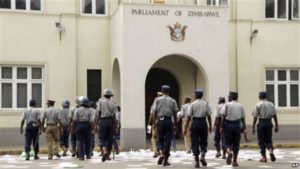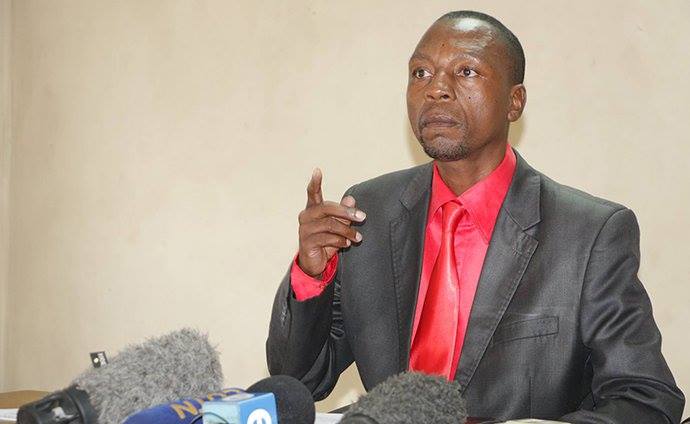These days if you say, Ukraine, the next word that comes to mind is likely to be, whistleblower. When we think of whistleblowers, we tend to assume that they have extensive protections against the seemingly inevitable efforts to smear them, fire them or dismiss their claims. But attorney Eric Havian, who represents many whistleblowers, says the Intelligence Community Whistleblower Protection Act does not offer intelligence whistleblowers the protections that corporate whistleblowers get. What should be done? Read on! The Editor.

Eric Havian
President Trump demands that he be allowed to “confront” the national security whistleblower who exposed the president’s phone call with the president of Ukraine. National security whistleblowers need financial rewards and protection, not exposure. Unfortunately, the mis-named “Intelligence Community Whistleblower Protection Act” provides neither. Although exposure of national security wrongdoing ought to be a higher priority than exposing corporate fraud, whistleblowers who report fraud are treated much more favorably. It’s time to revise the ICWPA to provide national security whistleblowers with the same protection and compensation that corporate whistleblowers receive.
Our firm’s attorneys represent corporate fraud whistleblowers, and our clients receive protections and incentives that are critical to the success of corporate whistleblower programs. They are not available to national security whistleblowers.
First, the law provides substantial financial compensation to reward corporate whistleblowers with the courage to speak out. Our clients have received tens of millions of dollars in rewards for exposing fraud by government contractors, auto makers, securities dealers, tax cheats and others. Those rewards are important to incentivize whistleblowers to risk their livelihood and, in some cases, their safety, to expose corporate wrongdoing. The ICWPA provides no such financial reward.
Second, corporate whistleblower laws provide robust remedies to sanction employers who fire or otherwise retaliate against whistleblowers. These laws do not merely prohibit retaliation, but allow a whistleblower to go to court to seek substantial damages if retaliation occurs. The ICWPA states that retaliation is impermissible, but provides no access to the courts to remedy such retaliation.
Third, corporate whistleblower laws provide strong assurance of anonymity for whistleblowers. For example, the False Claims Act requires that whistleblowers file their complaints “under seal” in federal court, and anyone who improperly discloses their complaint or their identity is subject to severe court-imposed punishment. Indeed, corporate whistleblower programs not only prohibit disclosure of the whistleblower’s identity; the target cannot even be told that a whistleblower exists. Although the ICWPA prohibits disclosure of the whistleblower’s identity, no mechanism punishes persons who violate that provision.
The absence of these incentives and protections is exacerbated by added risks created by the structure of the ICWPA regime. No other whistleblower program requires the whistleblower to deliver her written complaint to her employer, the very organization whose conduct is the subject of the whistleblowing. Unfortunately, that is precisely what the ICWPA demands.
A national security whistleblower, whose complaint alleges wrongdoing by the Executive Branch, must deliver that complaint to an official in the Executive Branch (the Inspector General). While the IG is nominally “independent,” he must report the complaint to the Director of National Intelligence, appointed by and reporting to the president.
The Ukraine scandal revealed the inadequacy of this flawed structure. The DNI sought approval from a partisan Attorney General, who quashed the report to Congress. That unprecedented interception was later leaked, causing a media frenzy that revealed both the existence of a whistleblower complaint and details about the whistleblower’s identity. None of this would likely have occurred if the ICWPA were modeled after our corporate whistleblower laws.
President Trump and his allies would probably object to extending the rewards and protections of corporate whistleblowing to national security whistleblowers. The president has tried to learn the whistleblower’s identity so he can “confront” his “accuser.” Like many corporate targets of whistleblowing, the president wants to shift the focus from the credibility of the evidence, which appears largely undisputed, to the credibility of the whistleblower.
This calculated distraction further illustrates the wisdom of programs that preclude disclosure of the existence of a whistleblower, much less their identity.
The president’s supporters insist that the whistleblower has very little first-hand information. If true, that observation highlights that the case against the president, like corporate fraud that whistleblowers typically expose, does not depend on the whistleblower’s credibility, but upon the credibility of witnesses who do have first-hand information. The record of the call between Mr. Trump and the President of Ukraine, and the testimony of witnesses to that call, are the real “evidence” — not the whistleblower’s indirect knowledge of the call.
If an impeachment trial occurs, the president will be allowed to “confront” the witnesses who present first-hand testimony and test their credibility before judgment is pronounced. But at this point the president has no greater right to learn the identity of the whistleblower than a mob boss has the right to know, while the investigation is ongoing, who tipped off the police.
Current events have laid bare the inadequacy of our national security whistleblower process. We should extend the same benefits to national security whistleblowers that we now provide to corporate fraud whistleblowers. National security whistleblowers deserve rewards and protection, not confrontation.















 Mike Quartararo is the managing director of
Mike Quartararo is the managing director of 


